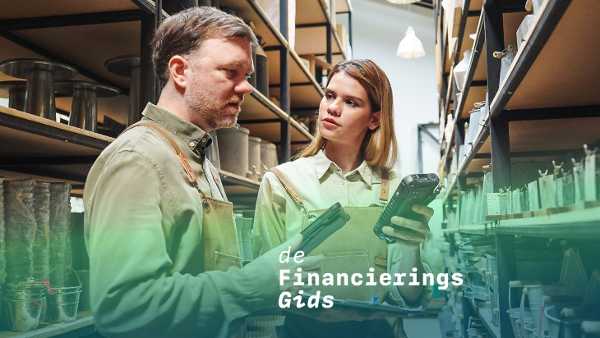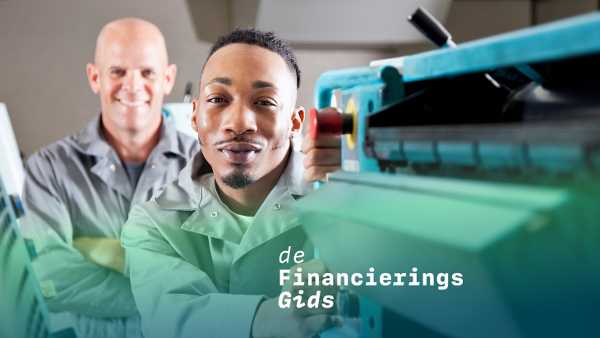What is crowdfunding?
- Gé Sletterink
- Background
- Edited 15 November 2024
- 3 min
- Managing and growing
- Finance
There are many ways of raising funds for your business. One option is crowdfunding, a form of financing whereby you raise money from the public. What is crowdfunding and how does it work?
What is crowdfunding
Crowdfunding literally means: raising money from the crowd. You must tell as many people as possible about your plans and ask if they are willing to invest in it. You do this through an online crowdfunding platform, where you create a campaign. You advertise your plans via the campaign, trying to convince the crowd to invest.
When people invest money in your business through crowdfunding, they get something in return. You decide how you repay them. You have 3 options:
1. Equity capital
The investors use the money they put into your business to buy shares in your company. In exchange, they receive dividends. How much these dividends are depends on the profits your business makes and what you have agreed with the investors. You can also make agreements with the investors about buying back the shares later.
2. Loan capital
The money people put into your business is a loan to you, a crowdfunding loan. You pay interest on the amount you borrow. How long the loan runs depends on what you are using the money for. Are you a startup? Then that is a risk for the investors. In that case, you usually have to offer a higher interest rate. The crowdfunding platform can advise you on this. A crowdfunding loan is the most popular form of financing through crowdfunding.
3. Something in return (reward)
For the investment that people make in your business, you provide something in return. For example, you give them a product. You can come up with a fun action. Say you want to start a coffee bar. Then your investors can come and have a free cup of coffee on Fridays for a year, for instance. Explain clearly in your campaign what your investors will get in return. Note: you must charge VAT to the investors on the value of the reward.
What can I use crowdfunding for?
You can use crowdfunding as a form of financing for all kinds of purposes. It is particularly well suited to one-off projects with a clear goal. Fo example, developing a new product, renovating a premises, or purchasing new machinery. This way, investors know exactly where their money is going. You can also use the money for research and development or as a financial boost to help your business grow.
How much does crowdfunding cost?
The costs of crowdfunding depend on the platform you choose and the type of crowdfunding. Most platforms charge placement fees when you set up your crowdfunding campaign. If the campaign is successful, the platform usually keeps a percentage of the amount raised. The platform also charges management and administration costs.
With equity crowdfunding, you pay dividends to the investors. How and how much depends on the agreements with the investors.
With a crowdfunding loan, you pay interest on the amount borrowed to your investors.
Dureation and flexibility
You decide how much money you want to raise through crowdfunding. Platforms often require a minimum of €25,000. This is because of the time they invest in your campaign and the costs they incur.
With equity crowdfunding, the money remains available to your business for a long time. You make agreements with the investors about the possible repurchase of the shares.
A crowdfunding loan has a term of between 3 months and a maximum of 10 years. At the start of the loan, you can make agreements about early repayment.
With crowdfunding with something in return, you must deliver the promised reward.
For who?
Crowdfunding as a form of financing is interesting for all businesses. Especially for start-ups, artists, and non-profit organisations. But larger companies also use crowdfunding for financing real estate, for example.
Brand awareness
A crowdfunding campaign will raise awareness of your business. It will also create a bond between your business and the people who invest in it. They will become fans, promote you, and often become loyal customers. The campaign will also tell you whether there is interest in your plan and allow you to assess its chances of success.
Applying for crowdfunding
Arranging financing for your business takes time. This is also true for crowdfunding. You should expect a lead time of 6 to 8 weeks. Preparing your application and campaign is a lot of work. You need to explain your plan, how you will implement it, and how much money you need. You also need to explain what investors will get in return for investing in your business.
You also need time to approach your (digital) network. And to show your business's figures and strategy. Indicate what your business's current financial situation is. And make clear what you will do with the money you raise. After the campaign, you also need to keep the investors informed.
Tip: Use the step-by-step guide Starting with crowdfunding.
Choosing a crowdfunding platform
Each platform has its own approach and different requirements. So, look for a crowdfunding platform that suits your product or service. And a platform where the financiers are who might be interested in your plan. Some platforms have their own speciality. For example, they may focus on a specific industry, sustainability, entrepreneurs in the cultural sector, or real estate financing. Compare the terms and conditions of a few platforms to make your choice easier. Also pay attention to the costs charged by the platforms at the start and during the term.
The platform will assess your plan and determine whether it is suitable for crowdfunding. You will often also have to disclose your business's financial data. Your plan may be rejected for crowdfunding. If your plan is suitable and is published on the platform, they will charge you a fee.
Help with business financing
KVK’s Financing Guide helps you find your way in financing your business. Do you still have questions? Call the helpline on 088 585 11 11 or ask an expert.
More about financing
Go straight to:


